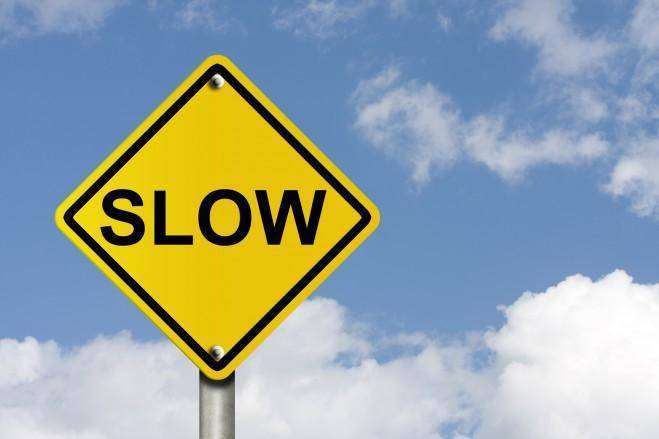
Long term travelers basic intuition is to keep on moving, the faster, the better. We’re here to live life to the fullest, to see as much of the world as possible which creates a feeling of urgency to switch between places. When I started my life as a digital nomad, I adapted an “Ultra Nomadic” rule of not staying longer than one night in a location, which turned me into an emotional train wreck. This article is the result of that experience and the lessons learnt in the years that followed. We will explore and explain the emotional and financial benefits of the slow travel for digital nomads and long term travelers.
It is important to mention that this article is about the traveling pace for digital nomads, or perpetual travelers. If you’re going on a short vacation, slow travel may not be the optimal way to experience your two weeks off. But even if your travel is limited by time, I would still recommend going slower than the regular tourist who tries to see as much as possible. Take a breather once in a while, get to know the surroundings, try connecting to where you are – it makes all of the difference.
So how long is a time period that’s considered a slow travel? For me it’s anything over a month in one place. If you’re staying less than a week, you’re probably living an ultra-nomadic lifestyle, or practicing “Fast Travel”. However, the ideal period of time to be considered as “Slow Travel” can change from one person to another, and due to circumstances. For example, if you work extensively while traveling, you need to stay in one place much longer to get to know it in the few hours a day you are not working. But if you only work an hour a day, you can still slow travel and experience a location, even if you are staying for less time.
Emotional and Social Benefits of Slow Travel
Avoiding emotional fatigue. Being constantly on the move can confuse you and make you lose emotional balance. That’s the reason that travel burnout is so common. The combination of lack of sleep and comfort, always being on move, persistent uncertainties, and the add-on pressure of working on the road can break down your defenses. At some point you will have to stop and regroup. This can be avoided, simply by staying longer in each place.
Feeling of belonging and a sense of home. When you move around slower, you can rent your own place, or at least have a regular place to go back to daily. You can essentially feel at home, which is something that nomads need, surprisingly enough. We all need that sense of stability and security. Other than your home, you can also have your “regular places”: a coffee shop, a daily walking route, a swimming pool. All of those make you feel like this is your place, and give you some emotional anchors to prepare you for your next transition.
Established routines. Creating and maintaining habits is important in the lives of digital nomads. Without them, it’s easy to get disoriented and inefficient. That’s why slow travel is vital, as it gives you time to create a few routines that will give you peace of mind and create anchors in your life. Those routines can be a daily exercise, a walk around town or your place of work. The more you stay in one place, the more you can improve those routines and optimize them.
Getting to know the place. You may see many more places when you move fast, but really getting to know a place (including all those hidden locations and different districts of a city) takes time. Staying a period of time allows you to immerse and live as a local in your locations, other than just pass through.
Understanding people. Slow travel gives you more time to develop relationships, but also to observe and notice things about people and their psychic. Personally, deeper understanding of cultures and countries is one of the biggest gifts of the nomadic lifestyle.
Establishing meaningful relationship. High quality relationships require trust and spending time together. Trust takes some time to build, so the less you stay, the less likely your relationships evolve into lasting friendship.
Experience activities that take more time. With slow travel you can participate in activities which may stretch over time. You can learn a language with a tutor, take up yoga, or sign up to any kind of course. Slow travel allows you to develop skills and enjoy activities which require longer commitment of time.
Having more stuff. I’ve always advocated for a minimalist lifestyle, especially when you move between places. I feel that the less you have, the happier you get. However, being ultra-nomadic will have you reduce from a minimalist to a “Scarcitist”, a new word to describe people who get rid of things they need since fast travel with anything other than a small bag will have a massive toll. Slow travel allows you to travel light, but still carry whatever you need without regret.
Financial and Career Benefits of Slow Travel
Focus. With slow travel you can get some real work done. Working efficiently as a digital nomad is difficult – you often lose focus due to the time needed managing change of locations. Fast travel will reduce your efficiency to dust and will result in spending most of your day searching the next optimal work location which has the infrastructure and atmosphere you need.
More time to Work. If you move frequently, you will spend much of your spare time trying to find accommodation, a good place to eat, establishing a social life from scratch – all of those have to be discovered again and again by trial and error and by Google maps navigation. In addition to those activities as your arrive, travel itself and preparing for your next destination is gobbling up huge amounts of time. When you travel slower, you have more time to work.
Save money. When you stay longer in one place, you’ll be able to find those cheap healthy restaurants, the 1$ shops, the discount cards and the big department store that allow you to stock up on ingredients and cook instead of going to restaurants. Those are hard to find if you jump from one location to the other. Of course, you will also save a lot of money by not traveling all of the time. Transportation is expensive, especially if you move often.
Get on those monthly rates. A monthly deal can save you more than 50% in comparison to the daily rate. Whether it’s the price of accommodation, coworking space, a monthly transport pass, doing a course or any kind of activity which requires time – the ability to stay in a place longer offers great benefits discounts and higher negotiation power.
Hidden deals and information from your contacts. The more you stay, the more opportunities come your way. Especially from the people you meet who can offer a suggestion on summer house, for example, or a special trip. Those opportunities only reveal themselves over time.
Build your Network. Establishing meaningful business connections takes time, just as making friends does. Those contacts translate into clients, suppliers, team members and business ventures.
Benefits of the Ultra-Nomadic Lifestyle
It will be fair to conclude this article with a few advantages of fast travel or ultra-nomadic lifestyle. First of all, this kind of travel makes you feel extremely alive, you experience more, you see something new every day and the endorphins are pumping. Just make sure you don’t overdose.
Fast travel also offers more flexibility and less attachment since you are not committing to any activities or longer term accommodation.
By slow traveling with low discipline, you also risk wasting time while being passive in a cozy coffee shop or watching TV without doing much. Make sure you leverage slow travel to meaningful and vibrant experiences. I personally never commit to staying longer in a place before spending a few days and making sure I feel positive and excited and excited to commit for a longer stay. If that is not the case, I pack my bags, and continue to the next destination.
Considering all aspects, I think slow travel is the optimal style of travel for digital nomads. The emotional, financial and social opportunities it offers should not be missed and I encourage everyone to try it.



We will always try and spend at least a month in each place we visit, therefore always getting the local monthly rates on accommodation.
Hi Dave and Erin,
Yes, a month will get you good rates from my experience. In AirBnb there are rooms that are for 18 Euros a day, that become 250 Euros a month, so the difference can be substantial.
Although, if you commit to more than a month, it will be easier to find even better price (many owners don’t want to rent only for one month)
I stumbled across see woman living out of there cars. I am on social security and can not afford an apartment. I found this very interesting. Is most of the camping out west? In what states? What are some of the things I should read to learn more about this life style.